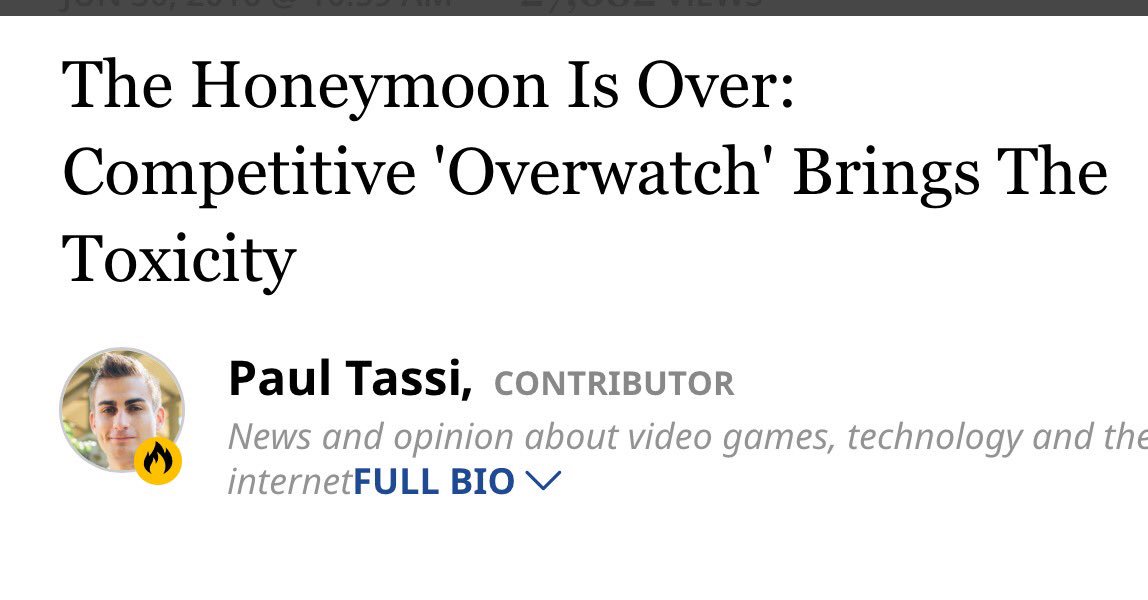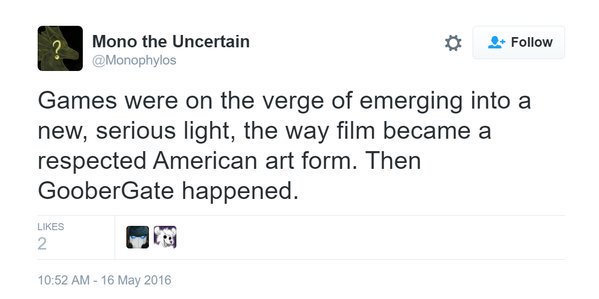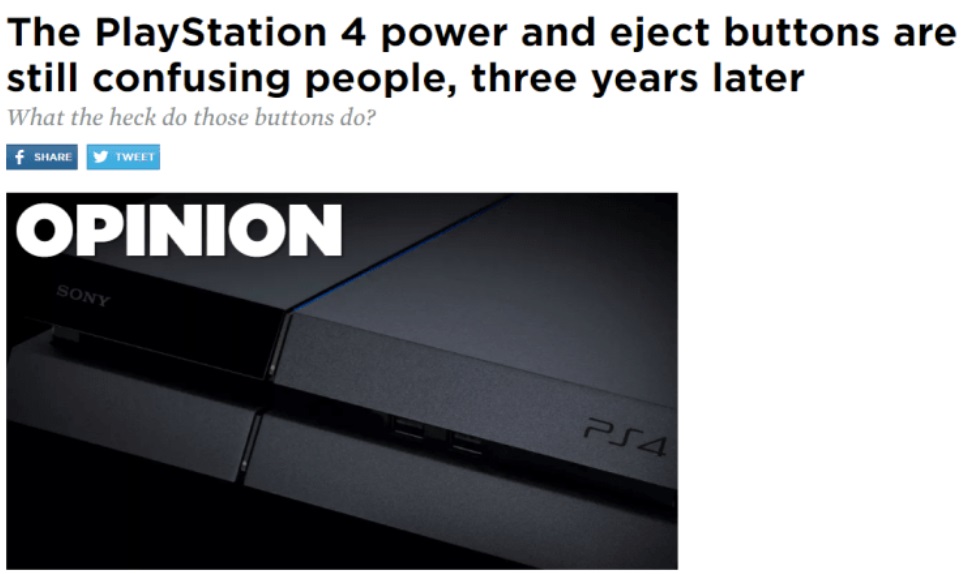Git Gud Or Die Trying: Why Game Journalists Need Skill
This is an editorial piece. The views and opinions expressed in this article are those of the author and do not necessarily represent the views and opinions of, and should not be attributed to, Niche Gamer as an organization.
I know it’s great for our hit count and keeps people caring about little rebel gaming sites like us, but I really do despise talking about GamerGate and the foul torrent of bullshit that rolls down the newly built fortress of social justice which has turned the hobby into its own personal outhouse.
It just seems so silly to have to explain – in editorials such as this – simple things like “let the buyer decide what is acceptable” and “allow developers to create what they want.” After all, it’s been that way through all of the 80s, 90s, and 2000’s, so why are we now being convinced that regression is the new progression in gaming?
The latest mark of shame stamped onto the hobby’s forehead is the proclamation that, according to our erudite betters, one does not need to excel at gaming in order to adequately critique it.
www.pastemagazine.com/articles/2016/05/the-git-gud-mentality-is-why-people-dont-take-game.htmlIn fact, they claim it’s a plus rather than a negative, since the unskilled game journalist broadens the spectrum of people that might join the hobby by speaking to prospective consumers on a neophytic level which some newcomers may find less intimidating.
Before I address that, let me first say that gaming does not require such people. The hobby doesn’t need uncommitted, “softcore” players to pad out its ranks since it already surpasses both the music and movie industry in terms of yearly revenue and did so long before mobile games came along and hooked your baby brother on Angry Birds.
You can blow all the smoke you want about middle-aged women buying Candy Crush time or teenagers stealing mommy’s credit card to purchase hats in Team Fortress 2, but the lion’s share of the hobby’s revenue still comes from folks buying the latest Grand Theft Auto or Call of Duty.
zhugeex.com/2016/02/the-grand-theft-auto-series-has-sold-in-more-than-235-million-units-worldwide/That’s why launch events for those games are bigger than the lines waiting for the next Marvel movie. Simply put, it’s the hardcore gamers that made this hobby and keep it financially healthy.
Now getting back to the reason for this editorial…why should a games writer have to be good at gaming?
Let’s ask another question: Do you want your car worked on by someone whose knowledge of automobiles is so anemic that they don’t know the difference between a carburetor and a fuel injector?
Do you want a mechanic who skittishly avoids engine repairs because fixing them is “too complicated”? Do you think any garage would hire a mechanic who refused to work on certain parts of a car due to them being beyond their understanding or ability?

Imagine having a hardcore street racer and “tuner” fanatic being told that they’re being exclusionary and elitist because they won’t let a car-hating, completely untrained and unskilled “wannabe” mechanic work on their automobile. Sounds ridiculous, doesn’t it?
Yet in the gaming hobby, we are now being told the same thing. 30-year old, goony, bearded hipsters are writing articles about games they hate and complaining about their inability to play them, then passing off those who object to their uneducated critiques as entitled men-children.
To your modern game journalist, having knowledge and skill is something to be ashamed of, yet hating the hobby and its adherents is considered both charming and inclusionary.
If you remember (or read the article I linked in the second paragraph of this editorial), you’ll know that this whole issue first sprung to the surface due to the Doom video that Polygon uploaded.
In the video, their reviewer struggled with aiming, shot at medkits, and generally failed at everything they attempted to do.
Perhaps unsurprisingly, anyone with working reflexes called the video maker’s skill into question and cited it as yet another reason why “big games media” is failing the hobby.
Even more unsurprising was how quick the typical hipster wannabes rushed to defend it.
In their defense of the video, one of the most frequently parroted proclamations was the old “this is why games aren’t taken seriously” chestnut. To them, gaming was teetering on the edge of mainstream credibility as a meaningful art form.
They blame the so-called cretinous dogs who think gaming is about fun and challenge, the ones who prevented it from shedding its childish origins so that it could morph into the elegant butterfly it was always meant to be.

Earlier in the editorial I said that gaming doesn’t need half-hearted casuals or the uncommitted to thrive, and this very obvious truth is what is behind the modern game journalist’s anger.
They know that long before their bandwagon-hopping, Felicia Day-idolizing writers discovered how fun it was to pretend to be a techie (something that became adorable thanks to being heavily romanticized in popular media), the gaming hobby had already surpassed music and movies on the list of most lucrative forms of entertainment.
vgsales.wikia.com/wiki/Video_game_industrySo why on Earth does the world’s most popular form of media, the one that makes the most money per year, have to change? Especially when each consecutive year brings in more money than the previous one?
Oh, gaming does need to change, but not the way opportunistic game journalists say it should.
Gaming needs to stop treating its customers like children that can’t handle adult material or situations.
Gaming needs to stop nickel-and-diming people with cut content disguised as launch day DLC.
Gaming needs to stop assuming piracy can be stopped and ditch their invasive DRM schemes.
Gaming needs to stop needlessly altering games for other territories and passing it off as “localization.”
In short, the game industry needs to realize that gamers really did grow up and don’t need to be protected from offense, assumed to be criminals, or viewed as walking banks.

Now, according to them, change should come by way of making games easier, removing fail states, removing punishment for mistakes, and making games be more about informing people of social injustices.
Of course, when they make those types of games and they fail, they’re quick to tell people how it was everyone’s fault but their own and that “this is why no one will take the hobby seriously.”
nichegamer.com/2015/06/22/sunset-developer-to-stop-making-games-following-commercial-failure/No, people don’t take the hobby seriously because the vast majority of the people covering and critiquing it are untalented hacks who have a backwards anti-gamer/anti-gaming agenda to push which seeks to undo thirty years of established (and revenue generating) norms.
It looks as silly to non-gamers as it does to those who do game.
Source: nichegamer